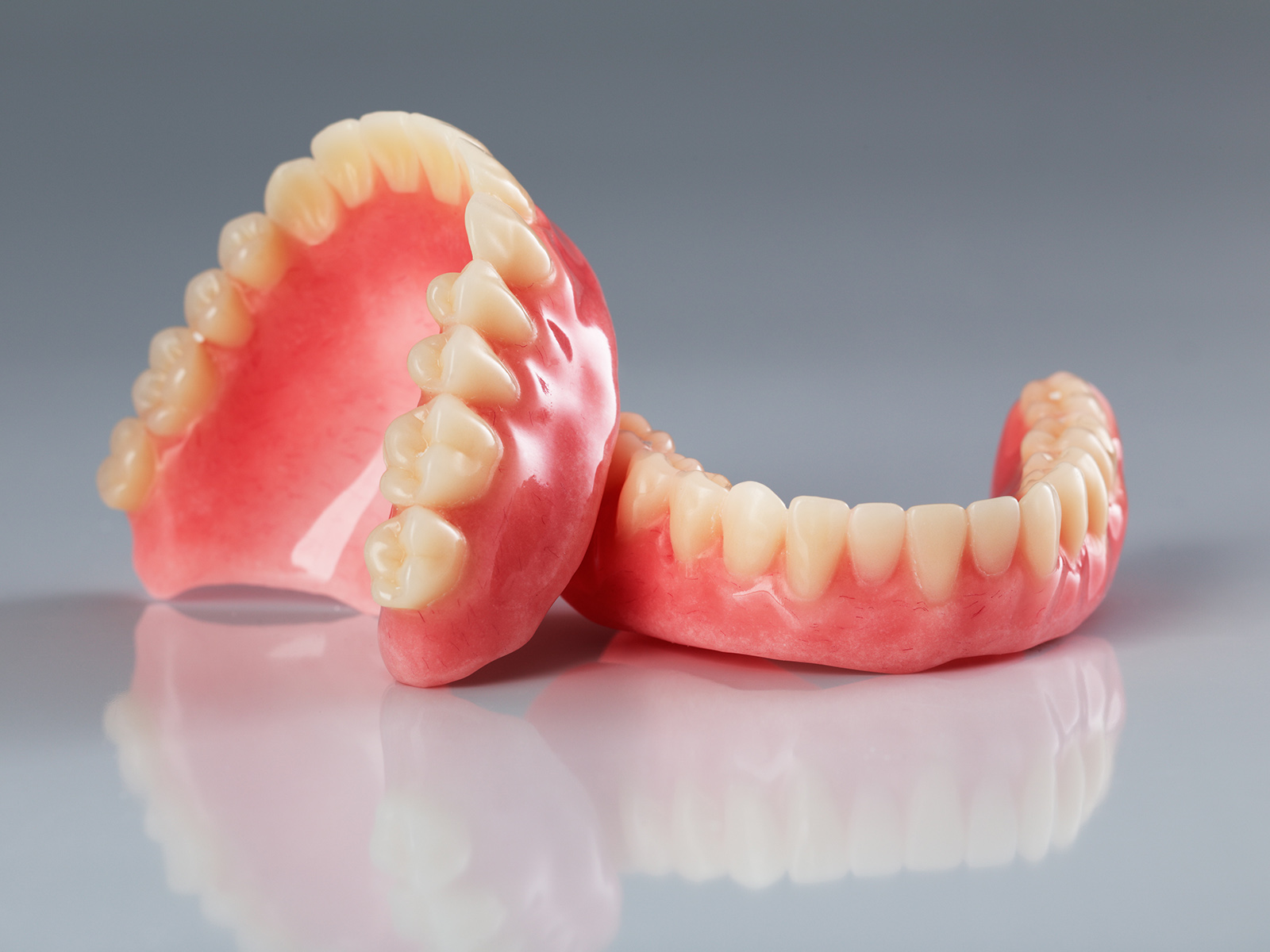
Key facts
- Dentures are false teeth that are worn to replace missing teeth.
- If you have missing teeth, wearing dentures can make it easier to eat and speak.
- Your dentures can make you feel more confident.
What are dentures?
Dentures are false teeth that are worn to replace missing teeth. If you have missing teeth, wearing dentures can:
- make eating easier
- make speaking easier
- improve your confidence
Dentures are usually made of acrylic resin (plastic) or a lightweight metal frame (mainly cobalt chrome) with plastic teeth.
When might you need dentures?
Your dentist or dental prosthetist might speak to you about getting dentures fitted if you have missing teeth. Dentures are specially made to fit your mouth.
There are 3 main types of dentures:
- A full denture rests on your gums and replaces all your teeth on your upper (top) or lower (bottom) jaw, or both.
- A partial denture replaces some of your teeth and is held in place by metal clasps around your remaining teeth.
- An implant-retained denture replaces one or more of your teeth. It is fitted through implants in the jaw — you can remove your dentures.
What happens during a denture fitting?
If you’re having your teeth removed by your dentist, you might choose to have dentures inserted on the same day. This is called an immediate denture. You may need frequent adjustments as your gums heal.
Your dentist might ask you to wait a few months after tooth removal before getting dentures. This allows your gums to heal so you won’t need as many adjustments once your dentures are in place.
Making and fitting your dentures can require 2 to 4 appointments.
What to expect after a denture fitting
Wearing dentures might feel strange at first. Most people take a few months to get used to how they feel.
You might need follow-up appointments so that your dentist or dental prosthetist can adjust your dentures.
After you have become used to the dentures, you’ll still need to see your dentist or dental prosthetist, at least yearly, to check they still fit correctly.
Caring for your dentures
You’ll need to learn how to take care of your dentures to avoid inflamed gums or infections.
You should clean your dentures:
- 2 times a day — in the morning and before going to bed at night
- after eating
- when necessary
Always remove your denture for cleaning. Use a toothbrush to clean all surfaces of your dentures. It’s best to clean your dentures with mild soap and water. Only use a specially designed soft denture brush when needed.
Toothpaste can scratch the denture surfaces.
Dentures can be kept in a dry clean container overnight. If using soaking solution, use it only occasionally.
Your oral health
You should look after your mouth, even if you don’t have teeth. Brush your gums and tongue every day and visit your dentist for regular dental checks.
What are the benefits and risks of denture fitting?
Dentures can make it easier to eat and speak. If you don’t replace missing teeth, the muscles in your face will sag. Dentures can help fill out your face.
It may take a few months for you to adjust to wearing a new set of dentures:
Your dentures might:
- feel awkward or loose
- cause irritation or soreness
- cause more saliva (spit) than normal
You should see your dentist or dental prosthetist if:
- your mouth is sore
- you have bleeding gums
- you have swelling
- you have ulcers



